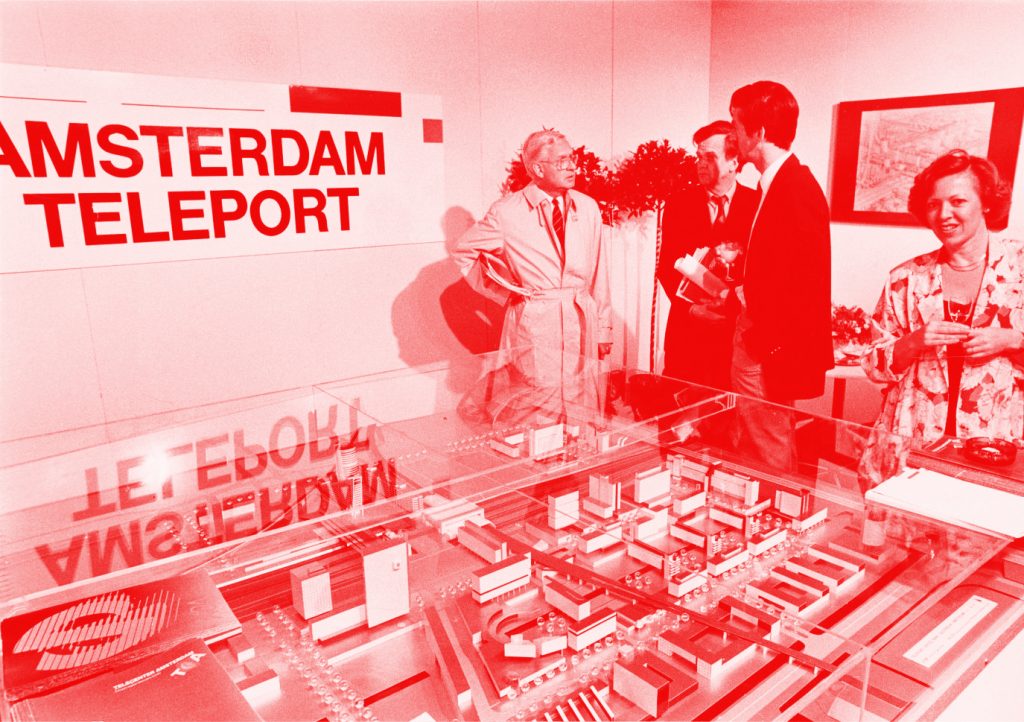Participants of the 2019 summer school will explore interdisciplinary approaches towards a sustainable integration of designing disciplines for smart urban mobility and the new urban development area Haven-Stad in Amsterdam. They will deal with the following themes: the role and function of smart urban mobility, including mobility as a service (MaaS) and emerging mobility options; travel behaviour of a growing number of users; sustainability challenges and fairness in transport planning; public and semi-public spaces (and social dynamics therein); exploration of alternative, marginal and emerging social uses of urban developments as meeting places and culture; urban integration in the overall mobility system; the interface between architecture and infrastructure with the urban fabric; programming of future transport nodes and the accessibility to and from such transport hubs of all types of smart mobilities (e.g. conventional public transport, shared mobility, autonomous taxis, etc.).
Tag Archives: inclusiveness
Integrated Mobility Challenges
Exploring Sustainable Urban Integration Approaches
in Future Metropolitan Areas
The Amsterdam Institute for Advanced Metropolitan Solutions (AMS), the Delft Deltas, Infrastructures & Mobility Initiative (DIMI), the University of Paris-Est and ARENA Architectural Research Network join Delft University of Technology in the organisation of the interdisciplinary 2018 Summer School: Integrated Mobility Challenges in Future Metropolitan Areas. This is a follow up of Making the Metropolis edition held in Amsterdam in August 2017 and the Stations of the Future event held in Paris in March 2018.
Integrated Mobility Challenges will explore interdisciplinary approaches towards a sustainable urban integration of rail-metro stations. At the main point of intersection between the railway and the city, stations are key elements of the organization of the intermodal transport but also catalysts of urban developments. The main question will be: which approaches and scenarios can be tested and applied to these intermodal nodes, particularly when dealing with lack of space and growing number of users? By using Amsterdam (case of Sloterdijk station area) as test-bed and design location you will exchange knowledge and apply different strategies of sustainable solutions.
When
From 21st to 28th August 2018
Where
Delft University of Technology (NL) with fieldwork in Amsterdam (NL)
Target Group
60 researchers or young professionals and master students in Architecture, Urban Design and Planning, Environmental Design and Sciences, Landscape Architecture, Transport, Infrastructure and Logistics, and related disciplines.
More information can be found here: Summer School Integrated Mobility Challenges

UPDATE: See also Metropolitan Stations and Stations as Nodes
Public Space: Changing Values
The Quest for Public Space: Changing Values in Urban Design, The City as Learning Lab and Living Lab
This article highlights the dynamics of values in our reasoning on public space. By means of an epistemological study, it tests the contemporary premises underlying our ways to safeguard the inclusive, democratic, agential city, and, as such, it aims to update our view on urban design. The article raises three subsequent questions: [i] Is the city our common house as perceived from the Renaissance onward, containing all, and consequently are public spaces used by the people as a whole? [ii] Is the city formalising our municipal autonomy as emphasised since the Enlightenment, in an anti-egoistic manner, and in this line, are public spaces owned by local governments representing the people? And, [iii] is the city open to our general view as advocated in Modern reasoning, restricting entrepreneurial influences, and synchronically, is its public spaces seen and/or known by everyone? – Inclusiveness, democracy, agentiality are strongholds in our scientific thinking on public space and each issue echoes through in the practice on urban design. Yet, in an aim to keep cities connected and accessible, fair and vital, and open and social, conflicts appear. Primarily based upon reviewing urban theory and particularly experiencing the Amsterdam for this matter, the answering of questions generates remarks on this aim. Contemporary Western illuminations on pro-active citizens, participatory societies, and effects of social media and micro-blogging forecast a more differentiated image of public space and surmise to enforce diversification in our value framework in urban design.
See:
Harteveld, Maurice G. A. D. (2017) The Quest for Public Space: Changing Values in Urban Design, The City as Learning Lab and Living Lab, IN Tieben, Hendrik, Yan Geng, and Francesco Rossini (eds) The Entrepreneurial City, , Rotterdam: International Forum on Urbanism (IFoU) / Hong Kong: School of Architecture, The Chinese University of Hong Kong, pp. 395-411
or alternative link
Joining Design for Values Institute
Today an exiting new institute has opened: The Delft Design for Values (DD4V) institute! The DD4V institute brings together practices and expertise in the field of design for values. It integrates my modest work with those of many others, and expand the existing. As such in the new institute we provide mechanism for the incorporation of moral and social values in technologies through their design processes. Research activities of DD4V will be organised along four themes: Value operationalisation, value assessment, value dynamics, and value conflict.
Continue reading
